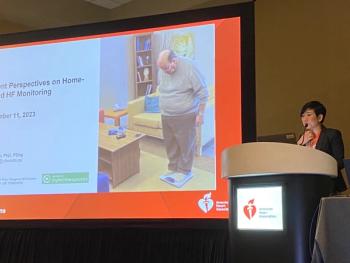
App That Uses Eyelid Photos to Assess Blood Hemoglobin Advances in NIH Challenge
The app’s backers believe the app could be a meaningful advancement in maternal care by making it easier to identify possible anemia in pregnant women.
A digital health tool that uses smartphone camera technology to measure blood hemoglobin has won the first phase of a National Institutes of Health (NIH)-funded challenge designed to accelerate technology to improve maternal health outcomes.
The device will now move to the second phase of the
The app is called
“Conventional blood hemoglobin tests are usually conducted by invasive and expensive venous blood draws, which require sophisticated equipment, highly trained experts to run the tests, and patients who must be present on-site with their health care provider,” Kim noted, in a
The reason the application falls under the rubric of the RADx challenge is that hemoglobin measurements are an important component of maternal care, since iron deficiency anemia can have significant health consequences, such as premature delivery and low birth weight.
Due to the implications of maternal anemia, Kim said blood hemoglobin tests are the most common laboratory tests completed on obstetrics patients. Yet, some 2.2 million pregnant women in the United States have limited access to such tests, he said. About 1 in 6 pregnant women in the US experience iron-deficiency anemia,
In a study
The RADx challenge has three phases. Having won the first phase, HemaChrome will now move on to the second, which involves support from in-house scientific and business experts at NIH with the goal of assessing the prototype, identifying risk factors, and accelerating development in a way that mitigates any identified risks.
If HemaChrome wins the second phase of the challenge, the final phase will involve independent testing and validation with the goal of moving the technology to market.
“Because the process to receive federal funding and support is highly competitive, winning phase 1 of the challenge has strengthened HemaChrome’s resolve to bring our solution to market to benefit those without sufficient health care access who need it most,” Kim said.
In the meantime, Kim said he and colleagues are working on additional studies of the technology. In addition to its participation in the RADx program, HemaChrome has also received support from the 2020 NIH’s Technology Accelerator Challenge and the US-Korea Conference Startup Pitch Competition, the company said.
Newsletter
Get the latest industry news, event updates, and more from Managed healthcare Executive.






















